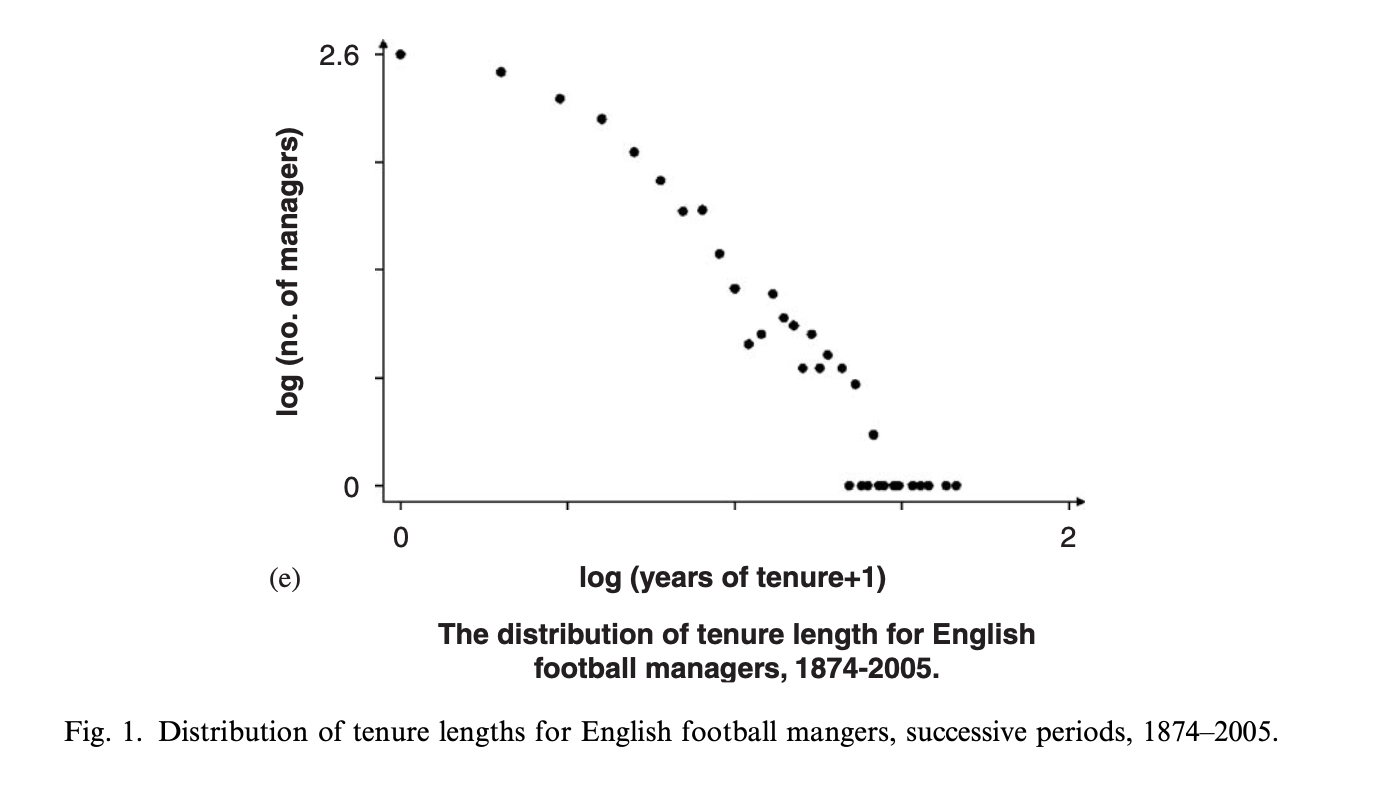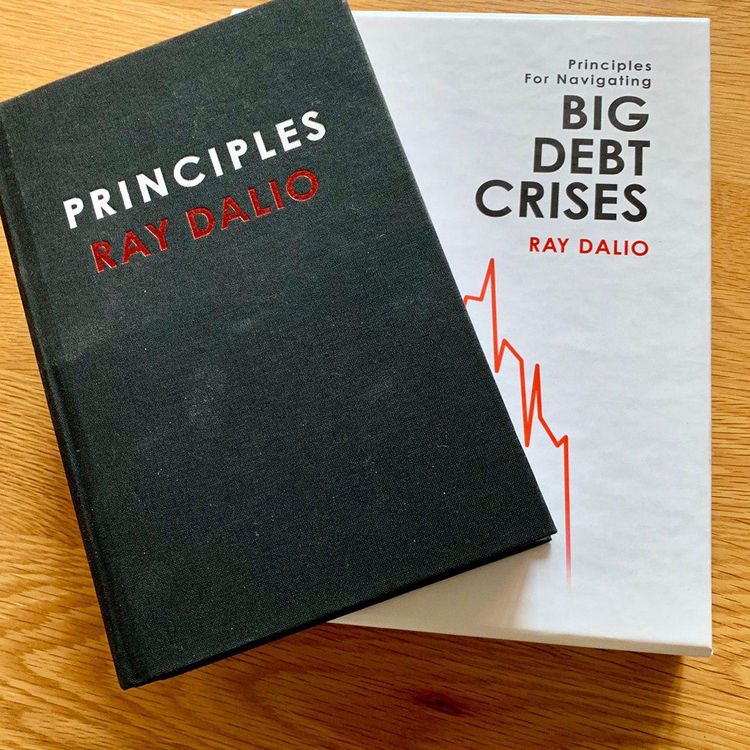Firing of BPL Football Managers and Maximal Efficiency
Till today, since the beginning of the Barclays Premiere League, eight out of twenty football managers are already replaced. Sometime back, together with two economists (Toke Aidt and Daniel Sgroi) and another fellow physicist in Cambridge (Bill Saslaw), we co-wrote a research paper entitled “Power Laws, Maximal Efficiency and the Turnover of Sports Managers” (which was published in Physica A and got some press attention in the UK after the World Cup 2006). Yes, I have done the “freaknomics” type research by looking at the phenomena of sports managers being fired for all sorts of reasons. It was the research that I have done on the football clubs that eventually led me to watching the Premiere League football till today. It was one of the most enjoyable and multi-disciplinary research collaborations for me. In this short blog entry, I will explain the research work with a “freaknomics” tradition and explain why the current firings will continue to happen because of market efficiency in the Premiere League.
Let me start off with a simple situation that you face. If you believe that life is random, any six sided dice you roll will give you a random probability of 1/6, provided that it is not a loaded dice. Consider the following scenario, if you are into sports betting, is the probability of betting in every football match just 1/3 (since there are only three outcomes – win, lose and draw)? An avid football fan will tell me that there are many factors affecting a football match, for example, the manager’s ability, the injuries sustained by the football team, the media reports which goes both ways like speculating this manager will be sacked if he wins or loses a game, or even two big clubs playing is different from a big vs a mediocre one.
It turns out that a combination of ideas from physics and economics provide an interesting explanation to why the football managers are getting easier to fire in the recent days. The idea stems from the science of complex systems in physics. In this framework, you look at the macroscopic properties (for e.g. the distribution of the tenure of football managers) that arises from relatively simple microscopic interactions (for e.g. two football clubs playing against each other with a 1/3 win, lose or draw and taking the scores of 3 for win, 1 for draw and 0 for loss). Unlike neo-classical economic theory that is built on deductive analytical methods, for e.g., game theory, the theory of complex systems might be use to ask the question of maximal efficiency in any economic system.
So why did we pick the tenures of football managers, if you may ask? There is a background story behind this. Originally, we intend to use the tenures of CEO in Fortune 500 as a dataset to demonstrate our proof of concept. The idea is to demonstrate that the firing of CEOs result in the economic system trying to move towards maximal economic efficiency. However, the problem is that for each data point of a CEO from a certain industry, say IT, I have to pay 5 Singapore dollars for each datapoint. Since we academics are poor people, we have to rely on smarter ways to find data.
The inspiration came to me during a discussion with Toke, Daniel and Bill over a coffee break. Since we are thinking of mathematically modeling CEOs and the way that they got fired, the scenarios can be extremely complex, given that CEOs can lose jobs due to mergers, or by many other factors. There must be a dataset out there which is free and easily obtainable using Google search. For some strange reason, I was thinking of football managers and it was likely because I recalled some friends of mine were watching the champions league game that night. Hence it may be better to pick something simple where the job is determined by win, lose or draw like any simple constructed game. The truth of the matter is that we picked football managers because we thought that it would be easy to gather the data. So, being a young and brash scientist, I told the rest that I will spend the night using Google to collect the tenures of the managers for the top 10 Premiere league clubs and do a plot. If the logarithmic plot is a power law, then we can account using the concept of self organized criticality in the physics of complex systems. So, thanks to those football fanatics who have collected the tenure years of the managers who managed their favourite football clubs, I am able to collect about 200 data points and did a first approximate plot and not surprisingly, I got a power law.

Of course, 200 datapoints are too small for the type of idea which I am pursuing. So, over the summer, we got a student intern who helped us to collect all the manager tenure dates and football statistics of all the leagues in Europe and the total dataset is about 7183 managers (datapoints). Instead of telling you the complete story, I will focus on the part which will tell you why we are seeing so much firings recently in the Premiere league.
The first thing is that if we splice, cut or mix the datasets of football managers’ tenure in the different leagues, the power laws are consistent throughout and we can measure how volatile a system in firing managers using the gradient of the power law. For example, I can split the datapoints in the seperate leagues – BPL, Serie A, Prima Liga and Bundesliga, the power law will still turn up. We did some statistical tests to examine whether we are getting a real straight line or a curve. It turns out that the French league did not satisfy a power law unless you start from counting the tenure from 2 years onwards. Well, it did correspond to reality, because the French has a labor law that states that you cannot fire someone unless they have worked for you two years. Hence most French managers don’t get fired so quickly after two years. We also tried on other types of sports, for e.g. American football and baseball. That helps us to feel that our idea is pretty robust. So, to cut the long story short, the Premiere League has an exponent of -2.23 (before 2002) which means that they don’t fire managers that often, while the Spanish La Liga and the Italian Serie A leagues, the exponents were far higher like -2.8. So, we started examining why that is the case.
It turns out that European managers are more mobile as compared to the English counterparts. Most European managers spent two to three years before they got fired for poor performances, and they are flexible in moving to another league easily without much problem. A lot of money has been poured into these leagues and the fans demand performance, and hence if a manager starts losing 5 to 10 games in a row, they got booted out by their presidents with the advice of the director of football, a system which is not common in the Premiere League until recently.
That comes to my favourite part, with more money into the Spanish and Italian leagues, you find that the better clubs will be better in getting better players. The reason why we see a power law is because in such zero sum games, there is a differentiation of good and bad, i.e. the rich gets richer and the poor gets poorer. A lot of small clubs will have more firings than the big clubs, because their performance are consistently bad.
What are all these results telling us? Here is a way to think about the problem. The interactions of the managers within the leagues and the external forces have built up till the point when it hits the critical mass. That pushed the system into a state which the physicists call it self-organized criticality. Avalanches and earthquakes are examples of systems which exhibit this kind of behaviour once they break a certain threshold. So, what does this mean to economics? The answer is simple. Let me use a result we observed from the data. Suppose you take the data for the English managers and cut it into different eras (1890-1920, 1920-1940, 1940-1960, …) , the power law only starts to manifest when it reaches 1960s. So, we went back to the archives and found two interesting things which happened that caused the distribution to move to a power law. The first is that football matches have moved from the stadium to the TV screen, allowing more people to watch the game and indirectly contribute to the money of the game. The second event which is more significant, is that the wages of football players have gone uncapped. Before 1960s, the maximum wage of a English football player is 20 pounds, but now, it went uncapped. Hence, the competition for talent has led to the system moving towards a maximal efficient state. The best managers and football clubs will start to pay higher for talent. With better talent, they win better games with the correct management. Hence the power law starts to manifest, because the football league has reached a “critical state”.
In fact, we predicted a few years back, that if the money into the Premiere League clubs increases, the power law will get steeper. Recently, I added the datapoints in the past few years back to my plot and found that the exponent has increased. Interestingly, the BPL is starting to share similar exponents close to her European counterparts. So, what are we seeing in the Premiere league now is that with more investments, there is a demand for better results, and as a result, we start to see the distinction between good and bad managers and hence, in turn, the power law is a demonstration of how efficient the system is evolved.
One interesting feature is that these results cannot be used to point the accusing finger at any manager’s current performance given that the results are purely statistical. Hence, we can’t apply them to one individual. However, we could use the results to calculate the probability of a manager’s survival in the future.
References: Toke Aidt, Bernard Leong, William Saslaw and Daniel Sgroi, “A power law distribution for the tenures of Sports Managers”, Physica A, 370(2):697-703.
